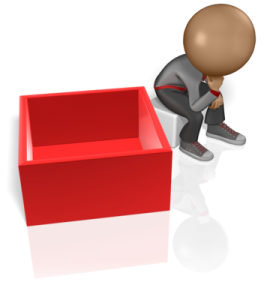Define Your Problem, First.
- Posted by - Coach Diana Dee
- On -
 When facing a problem, one of the most important things we have to do is make sure that we have first accurately and clearly defined the problem.
When facing a problem, one of the most important things we have to do is make sure that we have first accurately and clearly defined the problem.
Now that might seem like a nobrainer, but not necessarily so. There are a few things that can cloud our problem defining process. And if we fail to correctly define our problem, it unlikely that we will come up with the right or best solution. There are four things we can do to help.
First, we confront our own relevant weaknesses. For instance, when I get about the business of making my to-do list for the day, one of the first things I do is look for what I do not want to do. I know me. I tend to gravitate towards doing things that are mobile and get me moving, which is usually the wrong priority for the day. The funny thing is, once I face my weakness, it loses its power and I win.
We also want to become aware of the emotions that are in play. Fear is often caused by uncertainty, and uncertainty causes stress which makes us want a quick fix. But don’t do it when your emotions are raging. Take the time to assess your uncertainty to the degree you can. Don’t be afraid to think about it. And remember this. Intense emotions are short-term events that pass in a matter of minutes. When they’re gone, you’ll feel your sense of control return.
A third and very important strategy is to consider the mental model you’re using to frame your problem. A mental model is an internal picture about how you think something should be. If you assess your situation using the wrong mental model, it often takes you in the direction of what is familiar as opposed to your current reality.
This may sound like a long process and who’s got all that time, right? The truth is, once we create and establish patterns for what we do, we create habits. The relevant point here is to take the time to create good patterns of behavior and then use them. It will require discipline and more thought time, at first. The good news is, the more we use our patterns, the faster we get and the more refined our processes become.